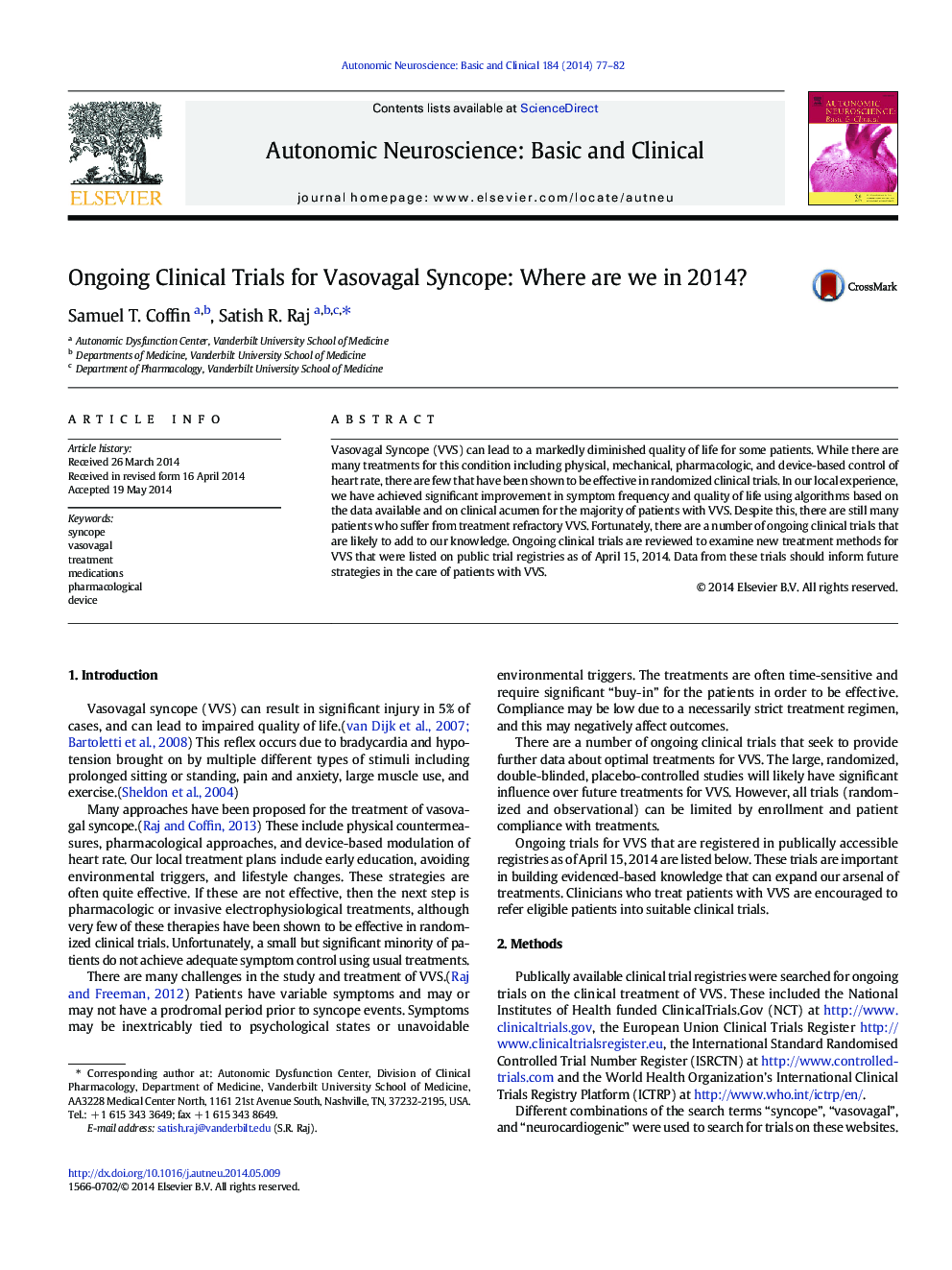| Article ID | Journal | Published Year | Pages | File Type |
|---|---|---|---|---|
| 3034645 | Autonomic Neuroscience | 2014 | 6 Pages |
•Ongoing trials for the treatment of vasovagal syncope are listed.•The strengths and weaknesses of each ongoing trial are enumerated.•New trials will inform the future treatment of vasovagal syncope.•Special attention should be paid to ongoing, large, randomized trials.•Efforts should be made to enroll patients in these trials.
Vasovagal Syncope (VVS) can lead to a markedly diminished quality of life for some patients. While there are many treatments for this condition including physical, mechanical, pharmacologic, and device-based control of heart rate, there are few that have been shown to be effective in randomized clinical trials. In our local experience, we have achieved significant improvement in symptom frequency and quality of life using algorithms based on the data available and on clinical acumen for the majority of patients with VVS. Despite this, there are still many patients who suffer from treatment refractory VVS. Fortunately, there are a number of ongoing clinical trials that are likely to add to our knowledge. Ongoing clinical trials are reviewed to examine new treatment methods for VVS that were listed on public trial registries as of April 15, 2014. Data from these trials should inform future strategies in the care of patients with VVS.
